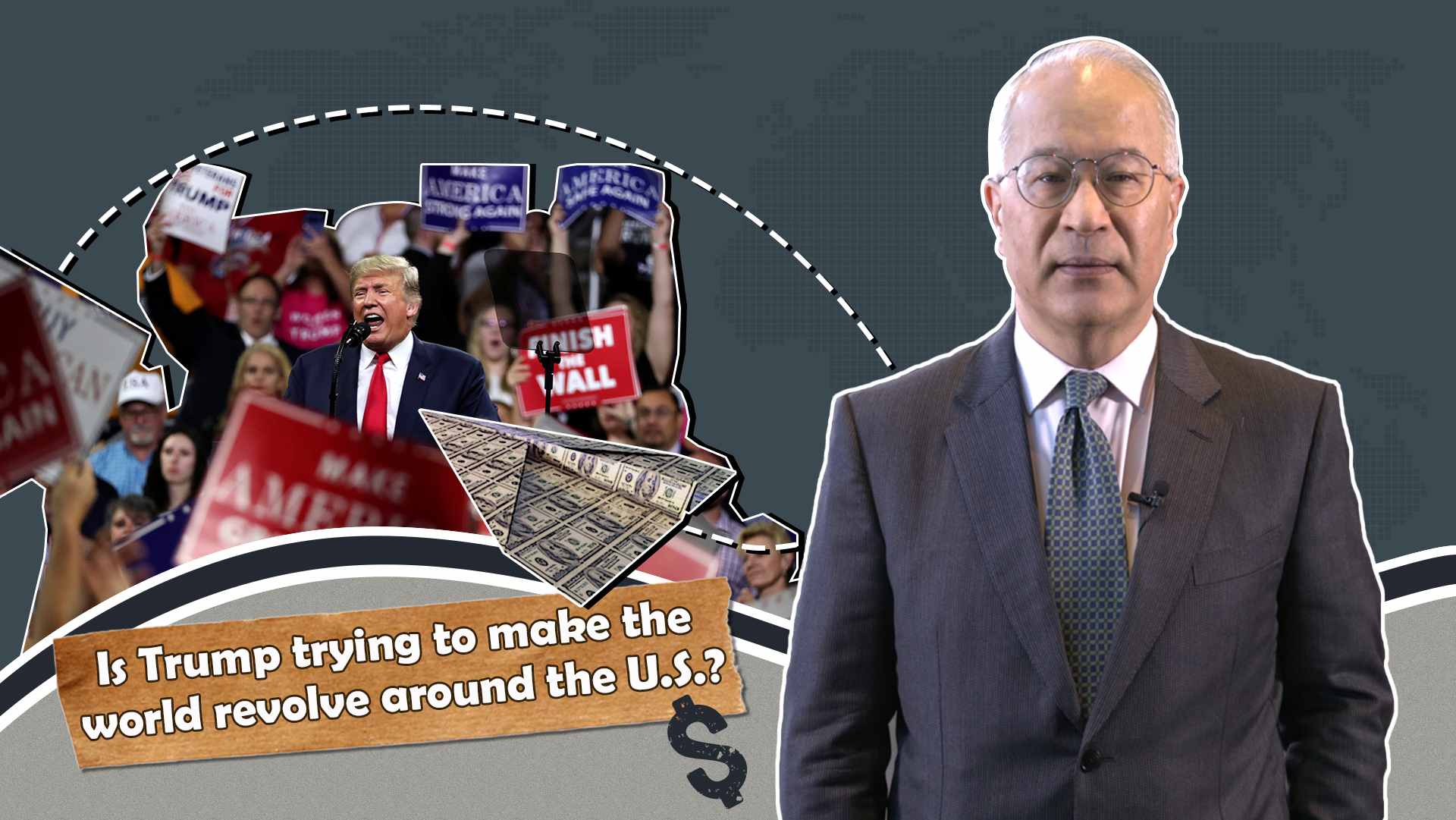
Opinion
16:16, 15-Jan-2019
Opinion: Is Trump trying to make the world revolve around the U.S.?
Updated
20:57, 20-Jan-2019
Einar Tangen
05:12

Editor's note: Over the past two years, U.S. President Donald Trump has withdrawn from a number of international agreements and accords, from the TPP, Paris climate accord, Iran nuclear deal, UNESCO, to United Nations Human Rights Council. Einar Tangen, a current affairs commentator, believes that Trump did so to push the world to revolve around the U.S. But what he did could leave America more divided and the world less safe. The article reflects the author's opinion, and not necessarily the views of CGTN.
There are 193 countries officially recognized by the United Nations.
Together they form our global community.
The United Nations, like the World Bank, the International Monetary Fund (IMF), the World Trade Organization (WTO), the Paris Climate Accord and more recently the Asian Infrastructure Investment Bank (AIIB) are all organizations that are open to the nations of the world that promote a rules-based global community of shared peace and prosperity.
As countries have different political, economic, legal systems, and often different cultures and languages, after World War II, there was a vision for a world based on institutions, agreements and rules, where differences could be discussed and resolved without wars and bloodshed.
Although there have been differences and conflicts over the years, the system that was envisioned by U.S. President Woodrow Wilson has been working fine for keeping the majority of the world safe, and furthering the greatest global economic expansion in modern history.
Today, the vision has changed. U.S. President Donald Trump has taken a U-turn.
Over the last two years, Donald Trump has withdrawn from a number of international economic, political and military groups, agreements and accords.
Trump's worldview is that the U.S., the richest and most powerful economic nation in the world, has been systematically cheated by bad deals made by his predecessors, and a global trade system, which he says is rigged against the U.S.
However, Trump does not mention that while the U.S. has a smaller part of the global economic pie today, it has, for the last 30 years in combination with the EU and other developed nations, taken home two-thirds of the world's profits.
Trump has also failed to acknowledge that U.S. companies left the country to expand their global supply chains, taking advantage of the lower production and labor costs, which were necessary for them to get a slice of the expanding global markets.
Just take a look at Apple, an American company with no real production facilities at home, yet has earned over 80 percent of the total profits from cellphones sales worldwide for the last five years.
To muster popular support, Trump has told Americans that their problems are the fault of other countries, rather than the failure of those who made money to share it.
In December 2017, it was reported that the wealthiest one percent of American households own 40 percent of the country's wealth, an interesting juxtaposition with 2015 when the numbers of the middle class dipped below 50 percent of the population, the first time since the post-war boom.
So what is Trump's strategy?
Trump is convinced that this is the last chance to remake the world around the U.S. His intent is to use the U.S' economic, political and military superiority to dismantle the existing post-WWII order and create a bicycle wheel world, where the U.S. is at the center and every nation is a spoke joined to the U.S. by bilateral economic and security agreements.
But his vision of "America First" has made the country more divided than ever, and the world less safe.
He has threatened nuclear Armageddon against the DPRK and Iran. He has unilaterally withdrawn from nuclear missile treaties with Russia and Iran. Trump has ramped up arms sales to the highest levels in history and then sent navy combat ships through the straits of Taiwan.
In all, Donald Trump has made the world less safe and secure.
With climate change threatening the survival of a billion people, with America's massive increases in arms sales, unilateral withdrawals from economic, political and military accords and unilateral trade tariffs, it seems that it is even more urgent now for the rest of the world to take their share of responsibility, and weather the storm from a world with more uncertainties than ever.
Scriptwriter: Einar Tangen
Animation: Xu Qianyun
Cover photo: Liu Shaozhen
Edited and designed by Zhao Yuanzhen, Liu Shuo, Li Linxi
(If you want to contribute and have specific expertise, please contact us at opinions@cgtn.com)

SITEMAP
Copyright © 2018 CGTN. Beijing ICP prepared NO.16065310-3
Copyright © 2018 CGTN. Beijing ICP prepared NO.16065310-3